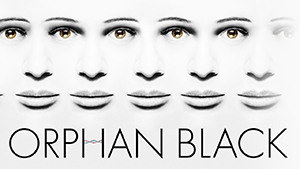 My friends have been raving about “Orphan Black” for months now, so when I finally sat down to watch it this week, I was fully prepared for the usual disappointing experience surrounding anything that’s been hyped to death. But I’m delighted to report that this BBC series is every bit as good as everyone says!
My friends have been raving about “Orphan Black” for months now, so when I finally sat down to watch it this week, I was fully prepared for the usual disappointing experience surrounding anything that’s been hyped to death. But I’m delighted to report that this BBC series is every bit as good as everyone says!
While the human-cloning idea isn’t new, the treatment is: gritty, suspenseful, and sexy, emphasizing the clones’ complicated relationships with each other and the world. If you’ve been hesitant about watching the show because it’s sci-fi, don’t worry — the tone is more like an action thriller than a bunch of fake geeks spouting pseudo-technical garbage and barking “Enhance” at computer screens.
If you enjoy taut, suspenseful thrillers that play fast and loose with questions of identity, nature vs. nurture, and free will, here are some great books in the same vein as “Orphan Black.”
 And Again
And Again
Author: Jessica Chiarella
In this thought-provoking speculative fiction novel, four terminally ill patients are given new, genetically perfect clones of their old, crappy bodies. Scars, tattoos, wrinkles and weak vision have all been swept away. Sounds like a dream, right? Not quite. Hannah, a painter, fears she may have lost her artistic gifts. David, a politician, struggles to avoid falling back into the bad habits that could sink his career. Connie, an actress whose looks were ravaged by illness, tries to make a comeback. Linda, a paralyzed accident victim, struggles to reconnect with a family that seems to have given up on her and moved on. Where does selfhood reside — in your physical brain, your personality, or your body?
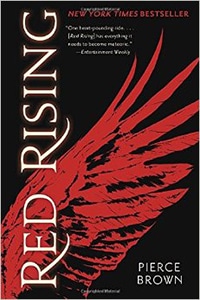 Red Rising
Red Rising
Author: Pierce Brown
OK, there may not be cloning per se in this bleak, violent sci-fi novel (the first in a trilogy), but there is a whole lot of sinister genetic manipulation. In a color-coded system reminiscent of Brave New World, the humans of the future are genetically modified by class: at the top are the nearly godlike Golds, the political and social elite, and at the very bottom are the Reds, who do the lowliest of menial labor. Darrow lives on Mars, slaving in the mines for fossil fuels, which they’re told is for the noble project of terraforming Mars for all mankind to coexist and thrive (having fled the uninhabitable Earth). After Darrow’s wife is executed for political rebellion, and he himself is nearly killed, Darrow learns that the government has been lying to and exploiting the Reds for generations. A revolutionary group called the Sons of Ares recruits Darrow for a risky scheme: to undergo drastic body modification, pose as a Gold, and infiltrate the highest levels of society before bringing them down. Darrow agrees, but once he begins his mission, he realizes it’s not as simple as all Golds being villains. There’s plenty of action and an impressively well-built-out world, and the occasional breather to ponder the big questions of destiny, free will, and inherent good and evil. It’s a big book, but once you start reading, you might not want to stop.
 Vitro
Vitro
Author: Jessica Khoury
In this YA thriller, Sophie Crue returns to her childhood home in Guam after receiving a mysteriously urgent email from her scientist mother, who is involved in a top-secret project. Her childhood best friend, Jim, is the only pilot willing to fly her there, but after a crash landing, they uncover the awful truth: Sophie’s mother belongs to an organization that snatches unwanted human test-tube embryos and raises them in incubators. These “vitros” are raised to be skilled laborers and to imprint on the first person they see after awakening. Worst of all, one of these vitros is Lux, the twin sister that Sophie never knew she had. The action-packed story moves fast, but still asks tough questions about free will, scientific ethics, and autonomy.
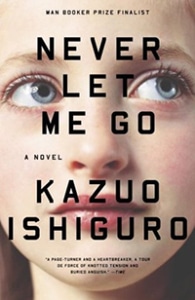 Never Let Me Go
Never Let Me Go
Author: Kazuo Ishiguro
This deceptively calm and introspective novel isn’t as fast-paced as others on this list; the full horror of its world sinks in slowly as you read. Kathy grows up at a peculiar English boarding school called Hailsham, knowing that she and her classmates are “donors,” clones raised for organ harvesting. Their fate is to be repeatedly pillaged of their healthy organs until they have “completed,” i.e., they run out of organs and die. Now 31, Kathy has deferred her fate by becoming a caregiver for dying clones, including her close childhood friends Ruth and Tommy, who were a couple. She decides to investigate and find out more about Hailsham and the “normal” women who ran it — and, perhaps, the secret of who she was cloned from. But the real shock comes from the ethical atrocities that we “normal” readers can read between the lines and understand, and which Kathy and the other clones never fully comprehend.
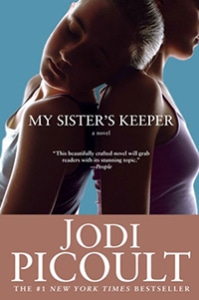 My Sister’s Keeper
My Sister’s Keeper
Author: Jodi Picoult
Another organ-harvesting-clone story, Jodi Picoult’s family drama is more about exploitative family relationships and the dangers of projecting our desires on others. Anna, 13 years old, was genetically engineered to be the ideal donor for her cancer-afflicted older sister. In her short life, Anna has donated blood, platelets, umbilical cord, and bone marrow in the quest to extend Kate’s life. Now, Anna is being asked to donate a kidney in a desperate attempt to save Kate — but instead, Anna hires a lawyer and sues for emancipation, on the grounds that her body is her own and she shouldn’t be forced to be an organ farm. The legal battle threatens to destroy the family, and there are no easy answers. Even when you think you know where you stand in this complicated, emotionally fraught conflict, the surprise ending may change your mind.
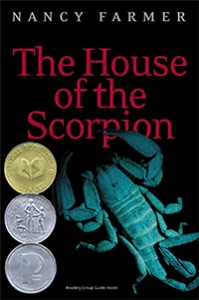 The House of the Scorpion
The House of the Scorpion
Author: Nancy Farmer
In this National Book Award winner, drug lords rule the country of Opium, located between the U.S. and Aztlan (formerly known as Mexico). Manual labor, like tending the poppy fields, is done by “eejits,” human clones whose intelligence has been destroyed to make them compliant. Matt is the latest clone of the 140-year-old drug lord Matteo Alacran, aka “El Patron,” and his brain was left intact at El Patron’s command. He grows up in the family mansion, sometimes caged and abused and sometimes treated as a favorite. But when Matt realizes his ultimate fate, he escapes to Aztlan — only to learn that there is more than one kind of slavery for clones. Full of rich characters and exciting action, this YA book is adventure-filled reading for all ages.
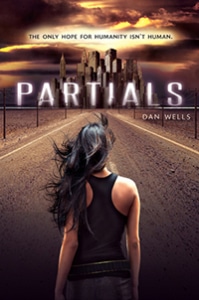 Partials (Partials Sequence Book 1)
Partials (Partials Sequence Book 1)
Author: Dan Wells
No list would be complete without a dystopian or two! In the 21st century, few humans are left in the U.S. That’s because we created an army of “Partials,” genetically engineered human-like creatures, to fight our wars for us — and they attacked us with a deadly virus. Now, humanity is dying out despite a law requiring all fertile women to become pregnant as frequently as possible, because all newborns are infected with the lethal virus at birth and die within days. Kira, a teenaged medical intern, hatches a risky plan with her friends to kidnap a Partial and study it scientifically to figure out their immunity. But their actions lead to more questions than answers, and Kira realizes that the survival of both humans and Partials depends on sharing knowledge and working together.
- Spring 2020 Book Preview - May 15, 2020
- Winter 2020 Book Preview - January 1, 2020
- Fall 2019 Book Preview - September 26, 2019

Leave A Comment